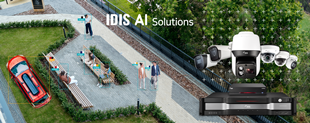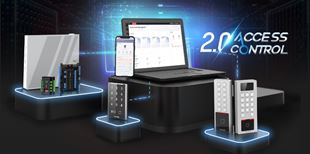Montany says that, for real estate developers and property owners, integrating interconnected devices into BMS platforms that process advanced analytics can help cut costs by maximizing operational and energy efficiency in their assets. For facility and security managers, new predictive maintenance and diagnostic services can offer enhanced visibility into system performance throughout buildings, as potential issues can be identified before equipment failure. For their part, tenants and other building occupants will enjoy systems that automatically react to their presence, operating with customised algorithms to provide comfortable indoor conditions.
This new age of intelligent buildings also heralds a transition from the closed and proprietary BMS of the past to a new generation of fully integrated enterprise-level software offerings that can manage disparate building systems through a unified and secure IP network. In the past, the proprietary nature of most systems led many building owners to install BMS platforms and connected equipment from a single manufacturer of building automation equipment. Conventional building automation vendors like Siemens, Honeywell, and Schneider Electric continue to dominate the market for BMS platforms, collectively accounting for more than 40% of current global market revenue.
Even so, Montany thinks that the market is beginning to shift. Competing vendors are embracing interoperability and partnerships with third-party providers to ensure product compatibility with new innovations across many domains. For example, an increasing variety of IoT-enabled energy and security equipment rely on access to third-party data from occupancy sensors to operate properly. To facilitate data transmission throughout a building, vendors are designing their products to be compatible with open protocols to interact with competitors’ offerings. New technological innovations with IoT-enabled equipment will also lead building owners to invest in more frequent upgrades and retrofit projects, which will encourage new market entrants to offer more alternatives to existing products.
This year’s Ibcon will showcase the latest in BMS platform offerings, particularly from IT companies such as Microsoft, Intel, Dell and HP who are comparatively recent market entrants. Many of these IT companies have built reputations as software specialists with BMS platforms that can offer end-users more complex algorithms and intuitive, configurable user interfaces. IHS Markit expects to see new innovations in dashboarding and data visualisation that improve end-user experiences during interaction with IoT ecosystems in buildings. Smart speakers and voice assistants will be integrated through many of these platforms, offering occupants a more direct way to customize and control the parameters of a building’s spaces. Finally, as artificial intelligence and machine learning capabilities improve, BMS platforms will also be able to exert increasingly direct, automated “command and control” authority over subordinate equipment in networked architectures.
Ibcon take places from June 6th-7th at The Cosmopolitan of Las Vegas, Nevada, USA.
















